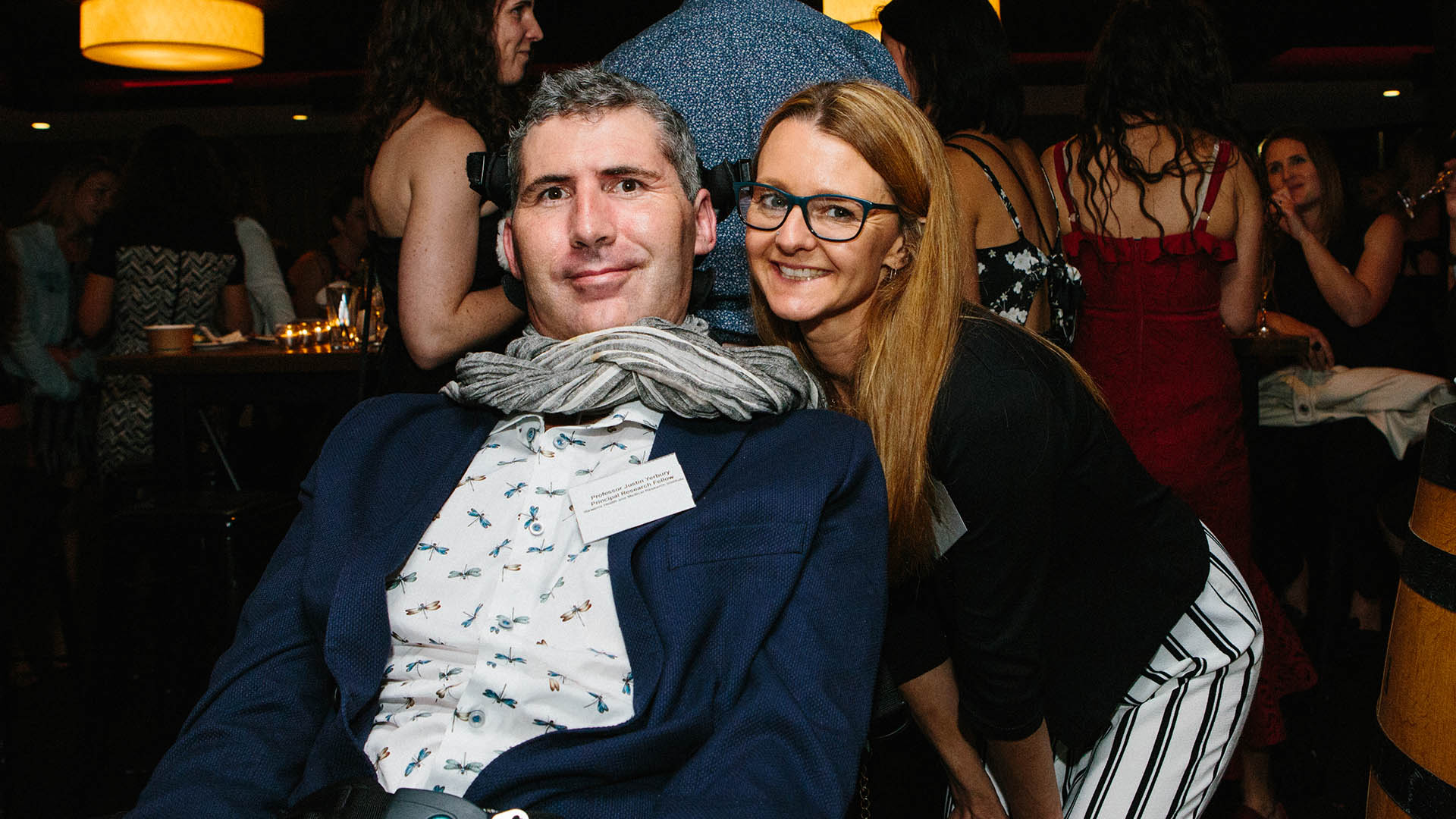May 21, 2021
Researchers call for better support for disabled academics
Aspects of academia create barriers for people with disabilities, write Justin and Rachel Yerbury
Academic institutions need to do much more to support faculty members with disabilities and to create an environment in which they can thrive, argues a commentary published 18 May in the journal Trends in Neurosciences.
The paper was written by Professor Justin Yerbury, who has amyotrophic lateral sclerosis (ALS), and his wife, Dr Rachel Yerbury. Professor Yerbury is a cell and molecular neurobiologist at the University of Wollongong (UOW) and the Illawarra Health and Medical Research Institute (IHMRI). Dr Yerbury is a psychologist at UOW and a research affiliate at IHMRI. Her research examines how nature affects mental health and well-being.
“We want people to understand how tough life is for people with a disability,” Professor Yerbury said.
“When you add academia on top of that, it's just incredible that disabled academics like me can actually continue to contribute in the way that we do.”
Professor Yerbury uses a wheelchair, is unable to speak, and types by using eye movement, which means that typing a document takes him about 10 times as long as it does for someone who types using their hands or voice commands. His research is focused on the molecular processes that underpin ALS, a disease that has affected many members of his family.
In the article, the Yerburys write that some universities are highly supportive and accommodating of their disabled academics, and that this has been Professor Yerbury’s experience of at UOW and IHMRI, which have been proactive and flexible in ensuring that he is able to continue his work in a safe and supportive environment. Other scholars, however, may not be so well supported.
The commentary discusses how several aspects of academia create barriers for disabled investigators. Many of these obstacles are driven by high demands for bringing in grant money and producing frequent research publications. These challenges, which result in reduced funding when they are not met, in turn make it difficult to retain staff. This creates a cycle in which it's very difficult for disabled academics to perform their jobs and carry out their research.
The authors note that visible disabilities, such as the one that Professor Yerbury has, as well as invisible disabilities, such as those people with most mental health disorders or people with autism who have typical functioning in most cognitive domains, need to be taken into account when one considers constraints that make it difficult for people to compete at the academic level.
They say that underrepresentation of people with disabilities in academia is not related to lack of interest on the part of people who might choose to enter the field but to the difficulties created by the high expectations of the profession.
In the commentary, the Yerburys point out that although universities offer accommodations and adjustments for disabled students, they don't extend the same measures to faculty members.
“Perhaps it's easier for universities to make adjustments for students, or perhaps it's expected that if you get to the academic level, you can compete, cope, and flourish regardless,” Dr Yerbury said. She added that universities might support students with disabilities because they don't want to risk discrimination claims.
The Yerburys highlight several ways in which academia could improve. These changes include leveling the playing field and focusing on equity rather than equality; reducing the pressure to compete for all academics, which makes the field almost impossible for disabled academics and dissuades them from entering it in the first place; and challenging ableism in the academy.
“Ableism, or the expectations of being able-bodied or able-minded, can be subtle and underhanded,” Dr Yerbury said. “Many academics and institutions may not even realise that they labour under these assumptions.”
She added that this problem is not unique to academia either. “I think most industries have a long way to go in terms of discrimination and ableism.”
ABOUT THE PAPER
‘Disabled in academia: to be or not to be, that is the question’ by Justin J. Yerbury and Rachel M. Yerbury is published in Trends in Neurosciences (https://doi.org/10.1016/j.tins.2021.04.004).
Justin Yerbury's research is funded by an Australian National Health and Medical Research Council Investigator Grant.
